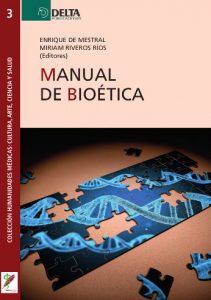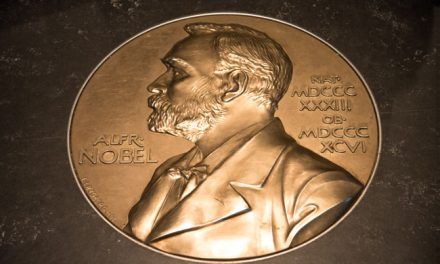“The book deals with the growing public interest in anthropology, for really knowing who the man is, what constitutes him, where his value and dignity come from”
 The group of Editores Iberoamericanos Unidos (Ediberum), of which the Spanish publisher Delta is part, has presented its “Manual de Biotética” (Bioethics Handbook), third instalment of the “Colección Humanidades Médicas: Cultura, Arte, Ciencia y Salud” (Medical Humanities Collection: Culture, Art, Science and Health). The work is born under the protection of an international editorial board in which seven academicians from the Royal European Academy of Doctors-Barcelona 1914 (RAED) participate. These are Ángel Aguirre, Xabier Añoveros, Joaquim Gironella, Ernesto Kahan, Joan Francesc Pont, Alfredo Rocafort and Francisco López Muñoz, who occupies the management of this advisory body that brings together 68 researchers and European professionals -44 of them members of Spanish Royal Academies- and Americans of recognized prestige in the field of medical humanities and related disciplines of 25 countries.
The group of Editores Iberoamericanos Unidos (Ediberum), of which the Spanish publisher Delta is part, has presented its “Manual de Biotética” (Bioethics Handbook), third instalment of the “Colección Humanidades Médicas: Cultura, Arte, Ciencia y Salud” (Medical Humanities Collection: Culture, Art, Science and Health). The work is born under the protection of an international editorial board in which seven academicians from the Royal European Academy of Doctors-Barcelona 1914 (RAED) participate. These are Ángel Aguirre, Xabier Añoveros, Joaquim Gironella, Ernesto Kahan, Joan Francesc Pont, Alfredo Rocafort and Francisco López Muñoz, who occupies the management of this advisory body that brings together 68 researchers and European professionals -44 of them members of Spanish Royal Academies- and Americans of recognized prestige in the field of medical humanities and related disciplines of 25 countries.
According to its own editors, this “Bioethics Handbook” deals with the growing public interest in anthropology, “to really know who the man is, what constitutes him, where his value and dignity come from. This book of bioethics is based on the principle of a personalist ethic that proposes to the human person and its ontological, irreducible value as the centre and end of human action. This is how the medical, technological and research activity can and should seek the full realization of each human being, for what this is, beyond their intellectual or social qualities”.
Enrique de Mestral, a prestigious Paraguayan bioethicist specializing in geriatrics and palliative care, and Míriam Riveros, specialist in family medicine, geriatrics, palliative care and bioethics and president of the Paraguayan Association of Palliative Medicine and Care, coordinate the work. Both are professors at the National University of Asunción.
So far, three volumes of this collection have been published: “Cuando la medicina no cura. La participación del personal sanitario en torturas, genocidios y experimentos al margen de los códigos éticos” (When medicine doesn’t cure, the participation of health personnel in torture, genocide and experiments outside the ethical codes), coordinated by Ester Cuerda and Francisco López Muñoz; “El vuelo de Clavileño. Brujas, locos, pócimas, fármacos, médicos e inquisidores a través de la literatura cervantina” (The flight of Clavileño, witches, madmen, potions, drugs, doctors and inquisitors through Cervantes literature), written by Francisco López Muñoz and Francisco Pérez Fernández, and this “Manual de bioética” (Bioethics Manual). Another five volumes are in the editing phase: “Diccionario de médicos españoles del siglo XX” (Dictionary of Spanish doctors of the twentieth century), “Diccionario histórico de dentistas internacionales” (Historical dictionary of international dentists), “Dé lirios a los delirios: el arte como lenguaje de la esquizofrenia bajo la mirada de la etnopsiquiatría” (Give lilies to delusions: art as a language of schizophrenia under the gaze of ethnopsychiatry), “Diccionario temático de antropología cultural” (Thematic dictionary of cultural anthropology) and “Miradas hacia el dolor: la visión desde las humanidades” (Looks towards pain: the vision from the humanities).





